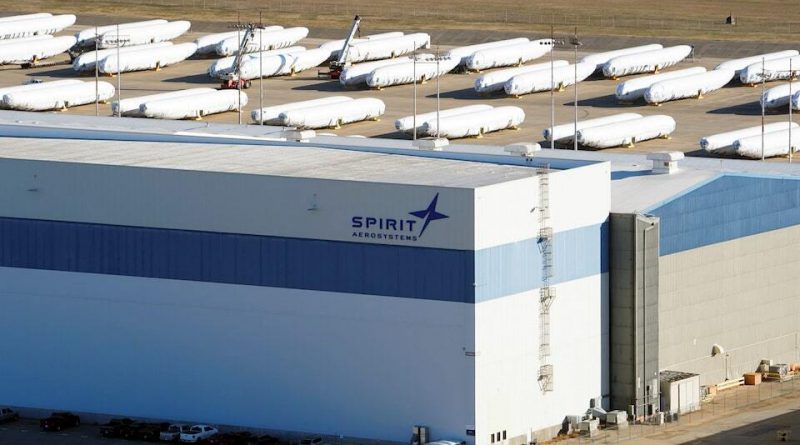Boeing Secures EU Green Light for $4.7 Billion Spirit AeroSystems Deal: A New Era for Global Aviation Manufacturing
Boeing’s long-anticipated $4.7 billion acquisition of Spirit AeroSystems has cleared a major hurdle with EU approval.
The deal promises to strengthen Boeing’s production quality and global supply chain while ensuring fair competition through strategic divestments.
In a major development for the global aviation industry, Boeing has received European Union antitrust approval for its $4.7 billion acquisition of Spirit AeroSystems, marking a significant step forward in the aerospace giant’s plan to regain full control of a key supplier it spun off nearly two decades ago.
The European Commission’s decision represents a major regulatory milestone, one that could reshape aircraft manufacturing dynamics and strengthen Boeing’s ability to deliver safer and higher-quality airplanes.
The approval, announced on Tuesday, follows Boeing’s agreement to sell several Spirit AeroSystems units that supply parts to Airbus, addressing concerns that the deal might otherwise undermine competition in the critical aerostructure market.
The Commission’s green light brings Boeing closer to finalizing the acquisition, which still awaits approval from U.S. authorities.
The European Commission, acting as the EU’s chief antitrust regulator, initially expressed reservations that the merger could lead to reduced competition in the production of aircraft structures—core components such as fuselages and wings used in commercial jets.
By consolidating control over Spirit’s operations, Boeing risked gaining an undue advantage in a market already dominated by two global heavyweights: Boeing and Airbus.
To alleviate these concerns, Boeing proposed a series of divestments and market-opening commitments. Chief among them is the sale of Spirit’s businesses that supply Airbus, ensuring the European rival continues to have access to competitive pricing and sufficient supply of key parts.
The Commission confirmed that Boeing’s commitments would preserve market competition while encouraging new entrants.
A Win for Market Fairness and Innovation
EU antitrust chief Teresa Ribera praised Boeing’s cooperation, noting that the divestments would “preserve competition in this crucial market and enable the entry of a new rival.”
One of the most notable moves is Boeing’s agreement to sell Spirit’s site in Malaysia, which produces aerostructures for Airbus, to Composites Technology Research Malaysia Sdn Bhd. The sale not only ensures supply continuity for Airbus but also introduces a new industrial player into the global aerostructure landscape.
Analysts say this balanced outcome demonstrates how competition regulation can coexist with industrial progress. By approving the deal under clear conditions, the EU has maintained a level playing field while enabling Boeing to advance its long-term operational goals.
For Boeing, this acquisition represents much more than an expansion—it is a strategic reintegration aimed at restoring quality, consistency, and efficiency after years of production challenges.
Spirit AeroSystems, once a Boeing subsidiary, was spun off in 2005. In recent years, however, supply chain disruptions, safety concerns, and quality lapses—particularly those affecting the 737 Max program—have prompted Boeing to seek greater control over its production network.
A Boeing spokesperson welcomed the EU’s approval, stating, “We are committed to fulfilling the remaining regulatory approvals and closing conditions necessary to complete this acquisition, which will further strengthen our ability to manufacture safe, high-quality airplanes for our customers and benefit the flying public.”
The company emphasized that reintegrating Spirit AeroSystems would allow Boeing to tighten oversight of component quality, streamline engineering processes, and ensure that safety remains the top priority.
Spirit AeroSystems itself has described the approval as a “major milestone” in its journey toward completing the transaction. The company is now working closely with Boeing, Airbus, and its new Malaysian partner to finalize plans and satisfy remaining regulatory requirements.
Spirit spokesperson Joe Buccino said, “This is another milestone toward transaction closure, expected this quarter.” Industry observers see this collaboration as a reflection of growing cross-industry coordination—one that balances commercial interests with global supply chain stability.
A Stronger Future for Aviation
Once finalized, the Boeing–Spirit deal is expected to reinvigorate the aerospace manufacturing ecosystem, allowing Boeing to better manage its production processes while maintaining fairness across the industry.
The divestments to Airbus-linked entities and new players like Composites Technology Research Malaysia could help diversify global aerostructure production, reduce bottlenecks, and stimulate innovation across the aviation sector.
This acquisition also comes at a time when global air travel demand is rebounding strongly, pushing manufacturers to increase production rates while addressing sustainability and safety expectations.
Boeing’s move could therefore not only enhance operational control but also align with broader industry goals for cleaner, more efficient aircraft development.
As the company awaits U.S. regulatory approval, analysts believe Boeing’s willingness to compromise with regulators and competitors alike marks a positive shift in corporate culture—from defensive posturing to proactive partnership.
The EU’s approval reinforces that large-scale consolidation, when guided by transparent oversight and fair-market principles, can strengthen both industry resilience and consumer trust.



